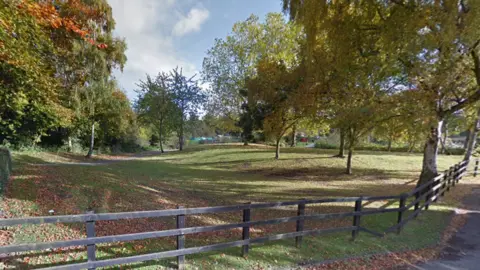Council reintroducing herbicides after ban
 Google
GoogleA council in Worcestershire is reintroducing the use of herbicides in its parks and open spaces, after banning them for a year.
Wychavon introduced a 12-month ban on the use of the chemicals in April 2024, with the council claiming it was part of its commitment to boosting biodiversity and protect pollinators.
Instead, contractors removed weeds either by hand or with tools, but Wychavon District Council said the trial was "only partly successful", with the methods causing "significant damage to tarmac and other hard surfaces" in some places.
A limited use of herbicides will now be allowed in the district's parks and open spaces.
The council also said that it had not been possible to remove weeds from some difficult-to-reach areas during the trial, leading to a "deterioration in the appearance of some parks and open spaces".
The trial was more successful in planted areas with only persistent weeds proving problematic, according to the local authority.
Councillors agreed at a meeting on Wednesday to allow the use of herbicides, but only on hard surfaces.
They may also be used in planted areas for persistent weeds, but only with sign-off from a senior member of Wychavon's parks team.
Wychavon District Council is responsible for the parks and open spaces in the Evesham, Pershore and Droitwich areas, including two designated nature reserves.
The move is still expected to cut the 20 litres a year of herbicide previously used in Wychavon's parks.
The council said the £88,000 saving from not continuing with the trial would be reinvested back into biodiversity projects.
Herbicides and pesticides are still being used to control weeds on hard surfaces in urban areas, like town centres and residential roads.
Councillor Beverley Hardman, Wychavon's executive board member for boosting natural capital, said: "This strikes a balanced approach between still reducing our use of herbicides and avoiding the ongoing repairs that would have been needed to damaged surfaces.
"Reinvesting savings from scrapping the scheme will allow us to continue to boost biodiversity in our parks while limiting the risks to wildlife and insects.
"We'll continue to explore future opportunities to reduce our herbicide use further."
Follow BBC Hereford & Worcester on BBC Sounds, Facebook, X and Instagram.
